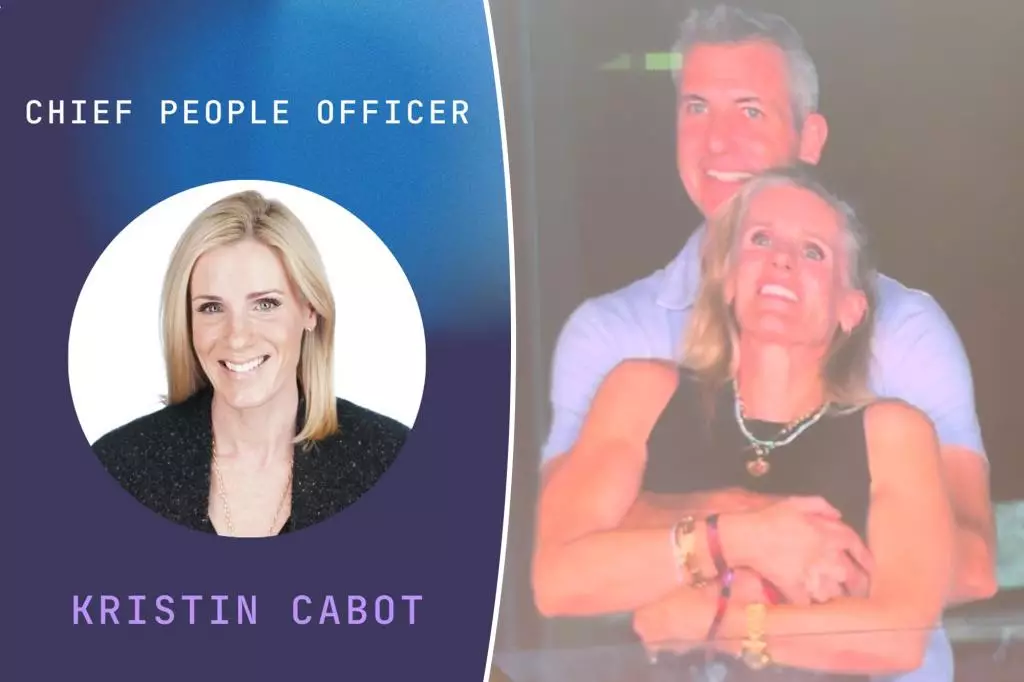In a corporate world often obsessed with the allure of leadership charisma, Kristin Cabot’s self-promotion epitomizes a dangerous trend: equating confidence with competence. Her public statements, emphasizing her prowess in “winning trust” across all levels and “building award-winning cultures,” represent a common but flawed narrative. Such claims may impress at face value, yet they often mask a deeper insecurity or a lack of genuine leadership substance. When leaders overtly showcase their ability to manipulate trust instead of earning it through authentic actions, they risk fostering a toxic environment riddled with superficiality, where appearances take precedence over integrity.
Cabot’s boasts about her influence and her knack for attracting top talent reveal an inflated self-image rooted in superficial achievements rather than substantive impact. This kind of hubris, particularly when paired with a blatant disregard for professionalism—evidenced by her publicly displayed PDA with her married boss—breeds a culture of entitlement and misconduct. When charisma is conflated with authority, it often leads to unchecked behaviors that spill over into the personal, compromising ethical standards and blurring boundaries of professional conduct.
The Dangers of Power and Its Abuse
Andy Byron’s reputation appears to be marred by contrasting narratives. On one hand, the CEO’s glowing praise for Cabot’s leadership underscores a typical executive strategy of fostering a narrative of innovation and passionate talent development. On the other hand, resurfaced reports from his previous employment paint a different picture—one tinged with authoritarian tendencies and aggressive management styles. The allegations that Byron would lash out and threaten employees who challenged him reflect a toxic power dynamic often disguised under the veneer of decisive leadership.
This dissonance raises fundamental questions about authenticity in executive roles. Do leaders who genuinely inspire trust act with humility, or do they wield their authority to intimidate and dominate? The evidence suggests that Byron’s leadership style may lean toward the latter, revealing that the cult of personality can quickly unravel when personal misconduct and ethical lapses come to the forefront.
Moreover, the personal scandal associated with Cabot, caught in a highly publicized PDA at a concert and the subsequent social media fallout, underscores the perilous nature of poor judgment at the executive level. Such indiscretions don’t just tarnish an individual’s reputation—they threaten the entire company’s integrity and credibility. Public figures in leadership positions must recognize that their behavior is under constant scrutiny, and a lapse in professionalism can have cascading consequences for their organization’s perception.
The Illusion of the Perfect Leader and Its Pitfalls
The juxtaposition of Cabot’s self-image and Byron’s alleged failings exposes a broader issue prevalent among high-ranking executives: the desire to craft an unassailable persona. When organizations reward flashy narratives of success and charisma over genuine ethical behavior, they inadvertently endorse a culture that permits misconduct. This phenomenon consolidates power within a small cadre of individuals who believe their authority entitles them to ignore ethics and social norms.
Byron’s history of abusive managerial tactics aligns eerily with this pattern—where leadership becomes a tool for control rather than inspiration. The narrative of a fierce, fearless leader transforming companies often conceals a willingness to intimidate, threaten, or manipulate subordinates to maintain dominance. When such behaviors are validated or overlooked, they set a destructive precedent, ultimately eroding trust and morale within the organization.
The scandal involving Cabot and Byron also shines a spotlight on the superficiality of PR efforts. Organizations often scramble to defend their reputation when misconduct surfaces, but true leadership requires self-awareness and accountability. The failure to respond transparently to allegations fosters cynicism among employees and stakeholders alike, illustrating that superficial fixes cannot mask fundamental ethical breaches.
In the grand scheme, this episode reveals the inherent risks of sycophantic leadership models driven by ego and unchecked authority. Leaders who prioritize image over integrity gamble not only their careers but also the well-being of their teams and the sustainability of their organizations. The true measure of a leader lies in humility, accountability, and the capacity to learn from mistakes—traits that are glaringly absent in the current scandal.
This unfolding drama serves as a potent reminder: leadership devoid of authenticity and ethical grounding ultimately succumbs to its own hubris. In the quest for influence and success, integrity must remain at the core of every action—lest the brightest stars burn themselves out in the shadow of scandal.

Leave a Reply